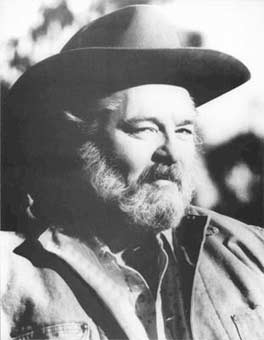promptly brought us to the great Grand Central Market on the lower west side of Manhattan. Hundreds of trucks were gathered there, vehicles of every description from all over the country.
Bob approached a ten-tonner loaded with cabbages that bore a Florida license. "Could we hitch a ride with you when you head back down South?" he asked.
"Where you-all headin'?" the driver asked. "Alabama," said Bob.
"Soon's we're unloaded, get aboard."
I loaded up on the sights, sounds and smells of the marketplace while
the cabbages were unloaded. Then, with my meager pack on my back, I clambered into the stake-bodied truck with Bob and Carroll Davis. Soon, we were on our way through the Hudson Tunnel to a thrilling new world.
Roaring through the North Carolina mountains was heady stuff. My first sight of palmettos in South Carolina brought me an even greater excitement. I felt a great pang of sorrow when the truck flew by a road junction that led to Lane, the little town where my father had been bom, but which to this day I have never seen.
***
The speedy trip ended safely, in spite of our growing trepidation over those hurled bottles, on the outskirts of Jacksonville, Florida. Now the joumey to Ensley began. Our rides were slow in coming and it took a while to reach the small city of Dothan. Once again, Brother Robert's acumen and experience came to the fore.
Ravenously hungry and a little short of "the ready," we were forced to knock on doors. Bob headed resolutely for the nicest residential area. "Why," he reasoned, "should we hit up poor people who can barely manage for themselves?" His reasoning proved more than correct. It brought not just a meal but exposed me for the first time to elegance.
Bob rapped on the back gate of a mansion he had intuitively chosen. A charming, urbane Black man appeared. 'What is it you gentlemen want?" the servant asked. '
"The three of us've come a long way today, sir. We're hungry. Could you help us?" Bob was gravely dignified.
"How fortunate for you." The servant beamed at us. "The master of the house and his lady were just now called away to Birmingham on urgent business. I had just finished preparing lunch for them when I found they had to leave immediately." He disappeared into the house, reappearing in a short while bearing a large silver serving dish whose center displayed a beautifully baked fish with parsley decorations, slices of lemon and paprika. He retumed a second time with another tray regally bearing new potatoes, fresh peas, warm French bread and a set of serving plates, complete with silver cutlery. As we sat on the curb, three young waifs in soiled, tattered clothing with no money, we marvelled at the service; not only did we have magnificently prepared foods on the finest of tableware. . . the servant brought us goblets of white wine.
Many years later, I saw "0. Henry's Full House," a 20th Century-Fox quartet of vignettes based on short stories by O. Henry. "The Cop and the Anthem"featured Charles Laughton as an impoverished gentleman who, on Christmas Eve, sweeps into an elegant restaurant and orders roast duck. His dinner clothes have long passed their day of splendor and his white gloves arejull of holes, but because he wears an air of disdainjul arrogance, he is accorded afull dinner. When the check is presented, he flicks an ash from his newly lit Cuban cigar, looks balefully at the waiter and rasps, "No money."
We left Dothan blissfully content. What a thrill to find that such gentle, kind people lived in the world.
We arrived in Ensley early the next afternoon to discover that Carroll Davis' sister was a marvelous cook. We gorged ourselves on bacon, eggs and hominy grits-oh, Lord, the South shall rise again. Carroll's brotherin-law was some character: He had worked in the steel mills at Birmingham without paying his gas bill for two years. He revealed to us an elaborate underground schematic of pipes and valves he had improvised that tapped into the main line before it reached the local meters.
At the age of fourteen, I couldn't understand why he had spent so much time and energy to thwart the gas company out of what, even then, was a small amount of money. "Beat 'em! By God, I beat 'em!" he exclaimed. (Vaguely, I became aware of the strange phenomenon that mankind feels it has to "beat" somebody at something. It's a recurrent theme. I've seen it since in thousands of guises.)
Bob and I spent two idyllic days in restful Ensley, then decided to hitchhike to California. As the vaunted bard of the Scottish HigWands, Bobby Burns, once wrote, "The best laid plans of mice and men oft gang agley." They sure as hell do!

No comments:
Post a Comment